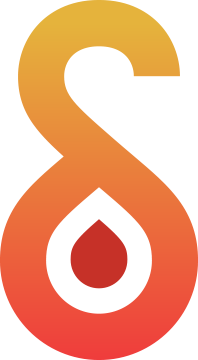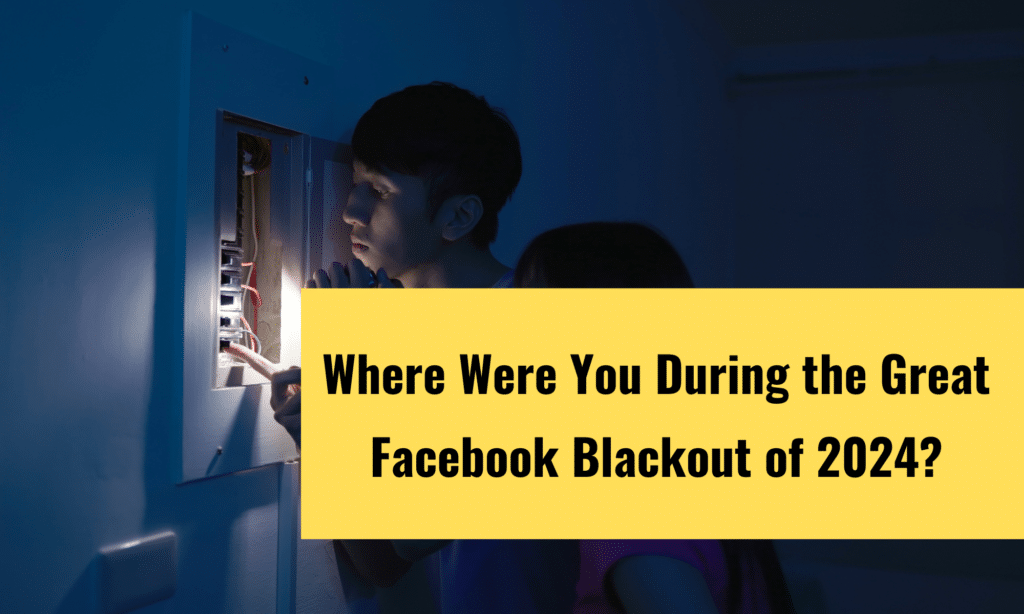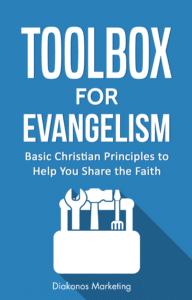There was a pretty momentous event last week. Did you feel it?
I’m not talking about Super Tuesday, the day when 16 states voted for their respective political party’s presidential nominee.
It did happen on Tuesday, and there’s at least a few conspiracy theorists who claims that the two are connected.
I’m talking about the great Meta Shutdown of 2024. For nearly two hours, Facebook, Instagram, and Threads were all down. People panicked, rioting in the streets, claiming that they were being unnecessarily censored.
What really happened? If you believe Meta, it was a simple “technical issue.” The servers never actually crashed, so the fault lay somewhere within Meta’s own service providers.
I’m not here to stoke the flames of some kind of mass hysteria, but here’s an interesting question to think about:
What would you have done if Facebook did go down?
Why the Universal Appeal of Facebook is a Problem
For nearly everyone that wants to have some kind of online presence, Facebook is usually the first place they start.
There are two major reasons for that. Number one, most people already have a Facebook profile of their own (3.05 billion users and counting). Since they’re already familiar with the platform, it’s not as big of a stretch to start up a business page and get rolling.
Second, everyone they know is on Facebook. If half the world’s population is on Facebook, it makes logical sense to then try and reach your potential audience base on Facebook as well. The only reason you wouldn’t is if you had a hyper-specific market that didn’t use Facebook as their primary social media vehicle (which does exist, as unbelievable as that may sound).
Unfortunately, those two situations have also caused a lot of people to put an undue amount of emphasis on Facebook’s platform. They spend thousands of dollars building up likes, creating content made for Facebook’s platform, and creating chatbots that auto-engage with users over messenger.
That’s not usually a problem — until Facebook goes down, which it did just last week.
If that happens, and all of your online efforts are wrapped up inside Facebook’s ecosystem, you’re done. Gone. Kaput. All of that work is down the drain and you will quite literally have to start from scratch.
I see a lot of churches where this is exactly the case. Maybe they don’t have time to invest in other platforms; I get it. It takes a lot of work to learn and utilize social media effectively.
But if the events of last week have taught us anything, it’s that you absolutely cannot afford to have all your eggs in one basket. If you do, and that basket goes missing, it’s lights out.
How to Safeguard Against Another Facebook Outage
Unfortunately, there is no way for you and I to get into Facebook’s technical back-office and run checks to ensure there’s no downtime (Unless you work there, that is. In which case, let me know so we can have a chat).
The only thing we can do is spread our audience over multiple channels so that we can keep rolling in the event it does happen again.
Here are some things to keep in mind.
Have a Marketable Asset You Own
You don’t own Facebook. Mark Zuckerburg himself only owns 17% of Meta (the parent company for Facebook). It’s a publicly traded company, so institutional and retail investors own the rest.
(That number may seem small, but it puts him on par with other tech founders like Jeff Bezos, who owns only 9% of Amazon. Bill Gates has liquidated most of his Microsoft stock in the last 20 years to bring his ownership percentage down to only 1%).
Even though Mark Zuckerburg’s ownership share is depleted, he still retained more than 50% voting rights in Meta. That means that at any point in time he chooses, for any reason at all, he can simply walk in to Meta’s headquarters and turn the lights off. And nobody can stop him.
That’s a scary thought. If I were a conspiracy theorist, it would almost bring shades of Fahrenheit 451 and 1984. Mark Zuckerburg as the head villain in a dystopian nightmare? Sounds about right.
Even if Facebook itself doesn’t go down, Facebook can still suspend your account whenever they choose. For many, the ban-hammer is almost completely arbitrary, and with a pretty useless support staff in place, there’s almost no chance you’ll ever win an appeal and get your account back. If you do, it will come at an enormous cost.
If you want to maintain your connection with your audience, you need to have an asset that you can control, such as an email list. Even if your email marketing provider cancels your account, you still have a list of names somewhere that you can keep in contact with. Just fire up a new account somewhere else and you’re still in the game.
Different Platforms Work Better Together
Even if you are 100% sure that your social media channel will never drop you, you still need to diversify your church marketing portfolio. Why? Because assets work better when they work together.
Think about something like an email list, for example. What’s in it? What does the information tell them? What are you asking them to do?
You could send them to a video, but that requires a YouTube channel. You could redirect them to a blog, but that requires a website. You could also ask them to sign up for a webinar, but that would require a Zoom membership.
Get the picture?
I know that there will be someone somewhere who will say, “BuT fAcEBoOk DoEs AlL tHaT fOr Me!” It might, but I promise you that the one-size-fits-all, jack-of-all-trades platform known as Facebook doesn’t do any of those things nearly as well as the boutique platforms I just mentioned.
Try as they might, Facebook will never have the video sharing capabilities that Youtube does. Think about it: That’s their whole business. And if it’s their whole business, that’s all they do every day. Zuckerberg is a genius, but even he doesn’t have the brainpower to be an expert at everything.
Your whole digital evangelism strategy should never be a one-trick pony. It should be a smorgasbord, digital “constellation” that harnesses multiple different platforms to meet your audience in various arenas to do different things.
If you’re not there right now, that’s fine. Nobody is. But that’s at least where we should all be headed.
Use a Website as Your Home Base
A website is kind of that nice middle ground between an asset you own and one you don’t own. Technically speaking, you own your website. You can download it to your hard drive at any time.
But on the other hand, your hosting company could also blacklist your site or go bankrupt, causing you to lose your website. For that reason, you’re kind of at the mercy of that company.
The chances of that happening are next to nothing, though. I’m a big believer in having a home base where you can operate all of your activities.
Your Facebook page should notbe that home base, for the reasons we’ve already outlined.
A website can be the place where you store your blogs, store sermon video, collect email addresses, and give potential visitors your contact info. A website is still the first place most people will go to find out more about your church before visiting in-person, not your Facebook page.
That’s why we focus so much on developing high-quality, engaging websites for churches. If what people see doesn’t communicate anything to the site visitors, the research shows that in-person visits will suffer as a result.
H2: Don’t Give Zuckerberg Your Power
In Proverbs 31, before King Lemuel’s mom tells him all those things to look for in a woman (i.e. the “virtuous woman”), she tells him to not “give his strength to women” or “your ways to that which destroys kings.”
It’s a fatal move to give your power to those who may then turn around and use it to destroy you.
The same advice applies here, albeit in a drastically different context. Mark Zuckerburg and Meta Platforms, Inc. should not control your entire digital evangelism process. Facebook is a great tool and one that we can use to create an enormous impact, but it shouldn’t be the only tool in your toolbox.
Just like your retirement, your digital evangelism portfolio should be diversified.
After all, you never know when Super Tuesday’s outage will strike again.


